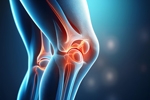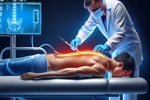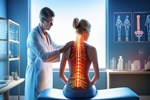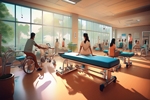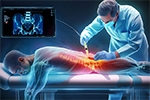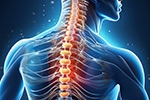Home »
Blog » Pain Management
| Stem Cell, PRP, Acupuncture in Queens & Long Island, New York
Pain Management | Stem Cell, PRP, Acupuncture in Queens & Long Island, New York
Knee pain can arise from injuries, overuse, or chronic conditions like arthritis. Common causes include ACL tears, meniscus injuries, bursitis, and osteoarthritis. Poor habits like wearing unsupportive shoes or skipping warm-ups can worsen symptoms. Treatment options range from physical therapy and medication to advanced interventions like corticosteroid or PRP injections. With proper care, you can manage knee pain effectively and improve your mobility and quality of life.
Read more
Chronic pain and sleep disturbances often form a vicious cycle, where inadequate rest worsens pain, and pain disrupts sleep. This condition, known as “painsomnia,” can severely affect physical and mental well-being. At Precision Pain Care and Rehabilitation, we focus on managing painsomnia with techniques like relaxation therapy, sleep hygiene optimization, and interventional pain treatments. Our goal is to improve your sleep quality and break the pain-sleep cycle for better overall health.
Read more
Radiofrequency ablation (RFA) is a minimally invasive procedure designed to disrupt pain signals at their source, offering long-term relief for conditions like arthritis, facet joint pain, and sacroiliac joint pain. Learn how this effective treatment can help you regain control and improve your daily life when other methods have failed.
Read more
Spinal stenosis is a condition where the spinal canal narrows, putting pressure on nerves and causing pain, numbness, or weakness. Common in older adults, it often affects the lower back or neck. At Precision Pain Care and Rehabilitation, we use interventional pain management techniques like epidural steroid injections, radiofrequency ablation, and spinal cord stimulation to relieve symptoms. Our goal is to improve mobility and quality of life without surgery.
Read more
Struggling with persistent back pain? Physical therapy can help relieve pain, restore mobility, and prevent future discomfort. Through targeted treatments like core-strengthening exercises, manual therapy, and advanced modalities such as ultrasound and electrostimulation, you can regain strength and improve posture. With the right approach, long-term relief is possible—helping you stay active and pain-free in daily life.
Read more
For many individuals suffering from chronic back pain, surgery is often considered a last resort. Fortunately, epidural steroid injections (ESIs) offer a non-surgical approach to pain relief by reducing inflammation around the spinal cord and nerves. These injections provide temporary relief but, when combined with therapeutic exercises, may help delay or even eliminate the need for surgery.
Read more
Back pain is a leading cause of disability worldwide, affecting individuals of all ages and lifestyles. While often manageable, its impact on daily life underscores the importance of informed, evidence-based care. This guide outlines the causes, diagnostic approaches, and treatment strategies to help patients better understand their condition and collaborate effectively with healthcare providers.
Read more
Tendonitis is a common condition that can cause significant discomfort and disrupt daily activities. It occurs when a tendon—the thick, fibrous cord connecting muscle to bone—becomes inflamed due to overuse, injury, or age-related degeneration. At Precision Pain Care and Rehabilitation, our focus on interventional pain management provides advanced treatment options to help patients find relief and regain mobility. This blog explores tendonitis, its causes, symptoms, treatment options, and how interventional pain management can be an effective approach for long-term recovery.
Read more
Shoulder pain can significantly affect your daily life, limiting mobility and causing discomfort during routine activities. The shoulder is a complex joint composed of bones, tendons, ligaments, and cartilage. Its versatility makes it susceptible to various injuries and conditions. Interventional pain management techniques provide innovative solutions for diagnosing and treating shoulder pain, offering relief without invasive surgeries.
Read more
Shoulder impingement syndrome, also known as swimmer’s shoulder, occurs when the rotator cuff tendons become compressed between the shoulder bones, often due to repetitive overhead motions or aging-related wear and tear. This condition leads to pain, reduced mobility, and difficulty performing daily tasks. At Precision Pain Care and Rehabilitation, comprehensive care options, including interventional pain management, aim to relieve symptoms and restore function.
Read more
Love this Post? Spread the World





